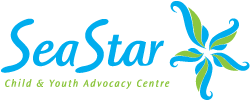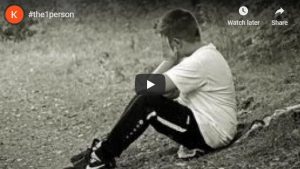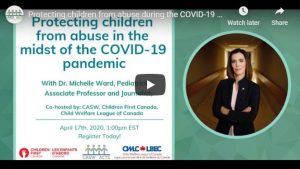Staying home is an important way to keep us and our communities safe and healthy during COVID-19.
For some kids, however, home isn’t always a safe place.
Families are dealing with isolation and extra stress right now, and we know these factors can increase the risk of violence and abuse. At the same time, kids may be having less contact with extended family members, coaches, teachers, or other supportive adults who might usually notice if something is wrong.
Social connection can help reduce the risks of child abuse. We can all work together to make sure kids, families, and our communities stay safe and healthy during this unprecedented time.
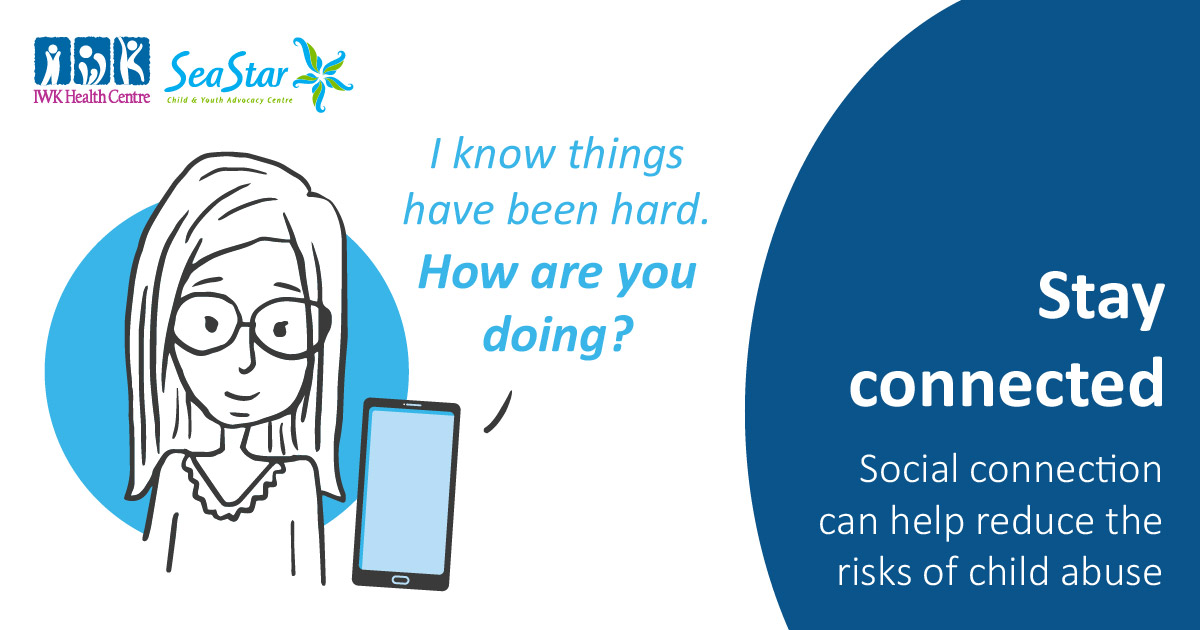
Social connection can help reduce the risks of child abuse
- Parenting during a crisis like COVID-19 can be hard. Staying connected with supportive friends and family can help caregivers feel less alone.
- If you know a family that may be struggling, reach out with empathy. Ask how things are going. Offer help where you can.
- If you’re concerned a child is or may be at risk, you have a legal duty to report your concern to the Department of Community Services or Mi’kmaw Family & Children’s Services. To learn more, visit How to Report.
In this quick video, Dr. Michelle Ward explains what people can do in their communities to help children and adults they know. Ward advocates reaching out with empathy and being there for those in need during these challenging times.
YouTube: Be #the1person for a child
This resource for educators, counsellors, administrators and others can help in communicating virtually and reaching out to at risk children and youth.
Visit: Children and Youth Living with Family Violence: During the COVID-19 Crisis
Webinar on protecting children from abuse amidst the COVID-19 pandemic, in partnership with the Canadian Association of Social Workers and the Child Welfare League of Canada, and featuring pediatrician and journalist Dr. Michelle Ward.
YouTube: Protecting children from abuse during the COVID-19 pandemic
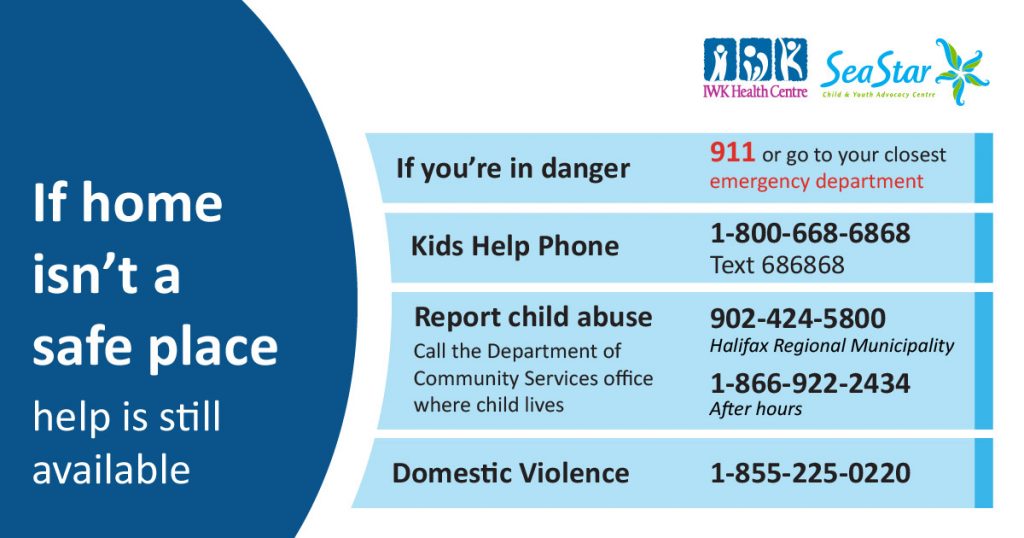
Help is available
If you, or someone you know, are worried about violence or abuse, help is available.
If you or someone else needs immediate medical care, are in immediate danger, or are a danger to themselves or others:
Call: 911
or
Go to: the IWK Health Centre Emergency Department or the emergency department closest to you
Kids Help Phone offers 24/7 support across Canada, including professional counselling, information and referrals and volunteer-led, text-based support to young people in both English and French.
Visit: Kids Help Phone
Call: 1 (800) 668-6868
Live Online Chat: Kids Help Phone: Live Chat
Text: CONNECT to 686868
If you believe a child is in immediate danger of abuse:
Call 1-877-424-1177
To report a concern of abuse or neglect:
Contact the Department of Community Services or Mi’kmaw Family & Children’s Services office where the child lives.
The list of offices can be found here. Find the office for the location where the child lives, and call the phone number listed.
After regular business hours, call 1 (866) 922-2434.
For more information, see: How to Report a Concern
The Neighbors, Friends and Families Support Line is available 24 hours a day, 7 days a week. It is operated by Transition House Association of Nova Scotia (THANS).
Callers can get guidance on how to spot the warning signs of abuse. Call takers can help people understand how to approach possible victims, without making the situation worse. The phone line is answered by trained transition house staff at THANS member organizations.
Call: 1-855-225-0220
Visit: Transition House Association of Nova Scotia (THANS)
Visit: Neighbours, Friends, & Family
The Nova Scotia Mental Health Crisis Telephone Line provides crisis intervention for children, youth and adults experiencing a mental health crisis or mental distress.
The service is available 24 hours a day, seven days a week, to support callers who present with suicidal thoughts, self-harming thoughts or behaviors, overwhelming anxiety, difficulty coping with distress, psychotic or distorted thinking, depression, substance use difficulties or any other self-identified mental health concerns. The crisis line also supports families, friends, community agencies and others to manage mental health crisis through education, outreach and consultation.
The Mental Health Mobile Crisis Team is a partnership of the Nova Scotia Health Authority, the Halifax Regional Police, and the IWK Health Centre.
Call: (902) 429-8167
Toll free: 1 (888) 429-8167
If you, or your child or youth, need help with a mental health and addictions concern, call toll-free 1-855-922-1122.
This Central Referral line is available to take your call Monday to Friday, 8:30 a.m. to 4:30 p.m.
A clinician will ask questions that help determine what services and supports best meet your needs. The call may take 30 minutes and you may be asked for your Health Card Number.
Visit: Mental Health and Addictions Intake Service
Visit: IWK Central Referral: How do I get service
Call: 1-855-922-1122
211 is a free, confidential information and referral service to more than 3,000 community and social services across Nova Scotia. Available 24 hours a day, 365 days a year.
Visit: 211 Nova Scotia
Live Online Chat: 211 Nova Scotia: Live Chat
Call: 211
More information
Visit our other pages further information and resources:
